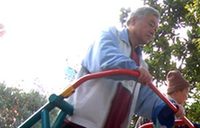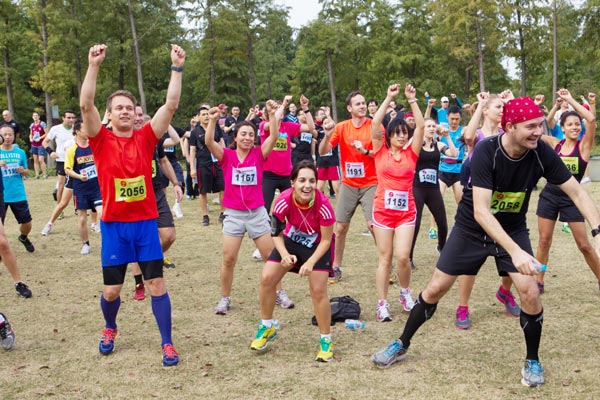Dashing forward
|
 |
|
 |
|
 |
He runs for more than an hour every other night. He jogs at the Olympic Forest Park in northern Beijing, which makes him feel better because he believes its greenery purifies some automobile exhaust.
Yang installed an air quality index app on his cellphone and doesn't run when the index exceeds 100.
"The benefit of running outweighs air-quality concerns," Yang says.
Before he started running, he binged on coffee and energy drinks to cope with his work overload.
Mark Soo, a fitness director at Shanghai's Eternity Fitness, says one of his club's members has researched the effects of running outdoors in Shanghai and written a thesis on the subject.
"The study revealed there is no conclusive evidence showing there was any more harm or long-term effects from pollution compared to just being outside or engaging in daily activities," he says.
"A 30-minute run still proved more beneficial than doing nothing at all. You also inhale a lot more pollutants and toxins sitting in a bar or smoky club for several hours than sitting next to the freeway at peak hour."
Hannah Dong recently moved to Shanghai from Jilin province's capital Changchun.
"I don't run in my city because it's under construction," the 24-year-old says.
"They are building a subway network there, and the pollution level is usually around 150."
While Chinese and expats try to second-guess the harm of outdoor running, the issue has done little to deter India's Fauja Singh, the oldest person to complete a full marathon — at age 101. He wrapped up his career's final competitive race in Hong Kong in February.

















